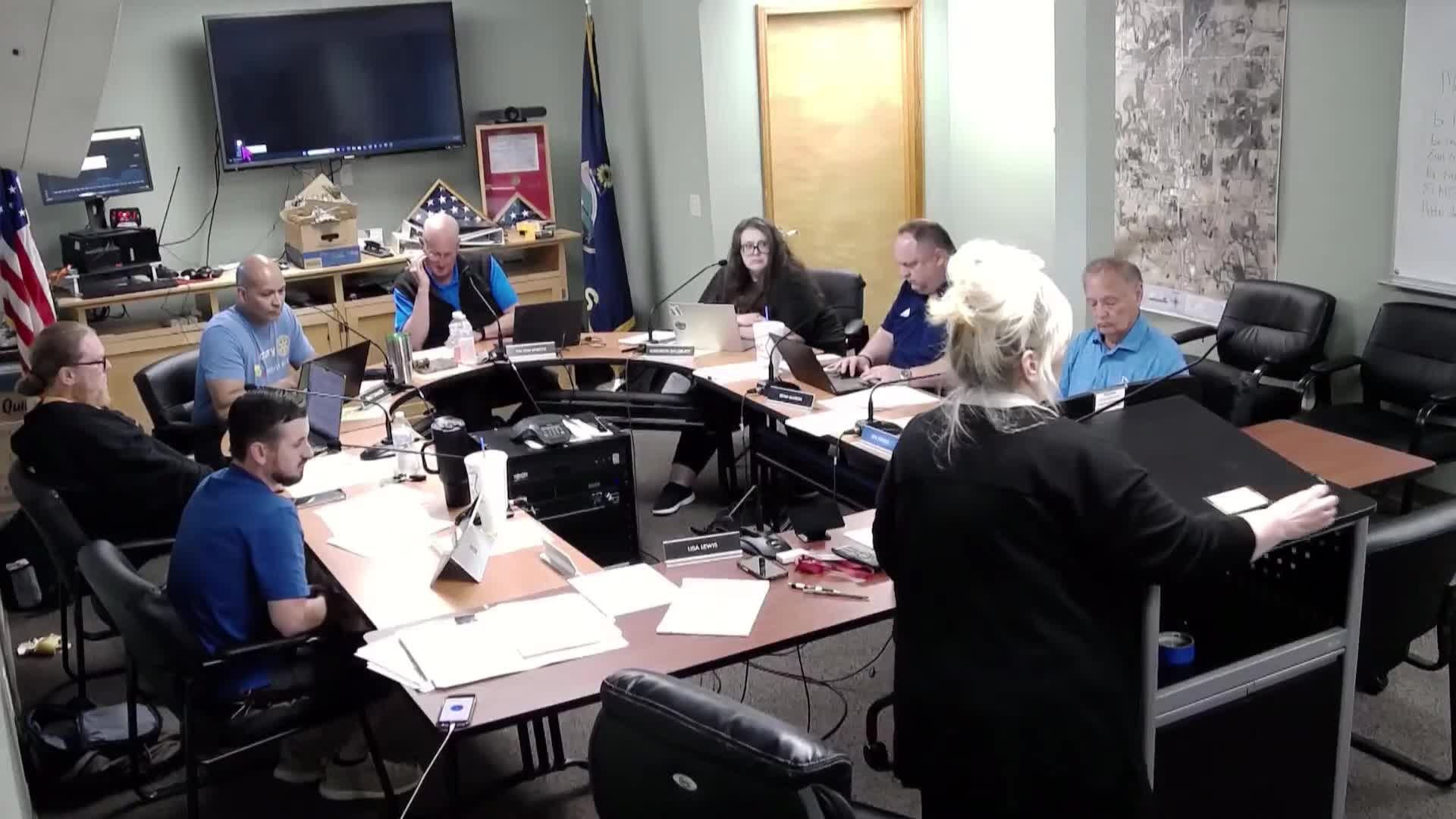Commission approves Verizon conditional-use permit after heated public hearing

Summary
After a public hearing that drew dozens of residents for and against a proposed Verizon wireless tower on Judy property, the Fort Scott City Commission approved Planning Case #1049 by a 3-2 vote.
The Fort Scott City Commission on May 20 approved a conditional-use permit for a Verizon Wireless communication facility on the Judy property, following a lengthy public hearing and debate over location, setbacks and community safety.
Legal counsel for Verizon, Curtis Holland, told the commission the company moved the proposed site 200 feet north from its original location after earlier hearings and that the new location meets the city setback standard (tower height plus 50 feet). "We need to improve our service in this area, provide coverage to the residents in the area as well as visitors to the area," Holland said during his presentation.
Property owner Aaron Judy, whose land is the proposed lease site, spoke in favor of the project. "I just wanted to put something to help my family on my own property," Judy said, adding he and Verizon worked to address concerns raised at previous hearings. Several residents who said they experience frequent loss of cellular service in eastern neighborhoods also backed the application, including Trishell Michael and Tim Judy.
Opponents raised safety, property-value and aesthetic concerns. Julie Brown and Amanda Johnson said they worried about lightning or fire risks and reduced property values; Amanda Johnson said she would relocate if the tower were sited nearby her home. Matt Witt, who said he represents an adjacent church and neighboring property owners, argued the applicant had not proved the chosen height and siting were the least intrusive alternative. "So far, I don't think Verizon has ever proven that... they truly suffer a significant gap in personal wireless service coverage," Witt said.
The commission discussed code-based setbacks (the city code measures setbacks from property lines and sets a required buffer equal to tower height plus 50 feet). Holland said the proposed tower would be about 286 feet from one neighbor’s house and therefore met the numeric setback; the applicant asked the commission to consider limited deviations from other property-line setback requirements in this location.
Several commissioners asked about lightning arrestors, wildfire defensible space and the potential visual impact on future property development. Holland said towers include lightning arrestors and are grounded and said Verizon would consider a cleared defensible area around the tower if the landowner agreed. Commission discussion also reviewed whether alternative locations on the Judy parcel would be less intrusive and whether allowing the tower in the proposed corner would limit future development of the site.
After the public comment period and rebuttal, the commission voted 3–2 to approve the conditional-use permit for Planning Case #1049, allowing Verizon to install the proposed wireless facility at the Judy site under the conditions and deviations discussed.
The decision includes the commission’s acceptance of the planning commission’s record and the deviations requested by the applicant; staff will prepare the written permit and conditions following standard procedures. The commission and staff also discussed coordination with KDOT and county planning as needed because the site lies near an abandoned railroad right-of-way and outside the city limits where extraterritorial jurisdiction questions were raised during the hearing.
The approval was contentious: three commissioners voted in favor and two opposed. The commission noted they will monitor any required mitigation (grounding/lightning arrestor verification, defensible space, and construction site controls) and that Verizon must follow permitting and installation standards in the approved permit.
Ending: The permit now moves to the standard permit-issuance phase; any required deviations and final permit language will be documented in the written permit and posted with the city’s planning files.

